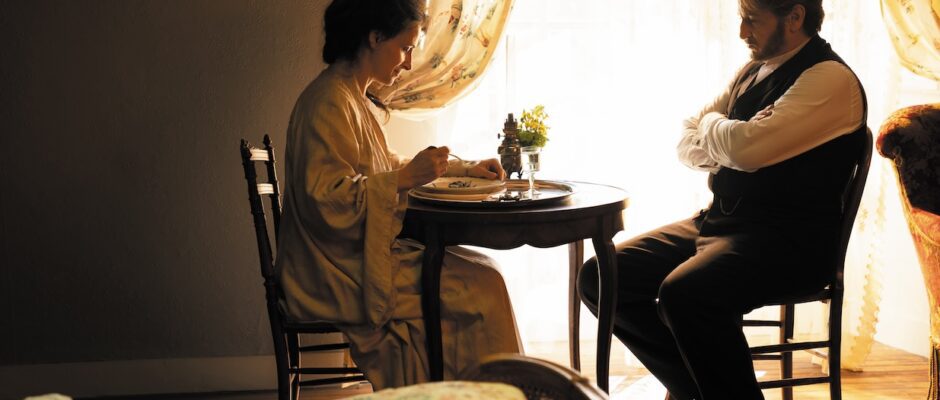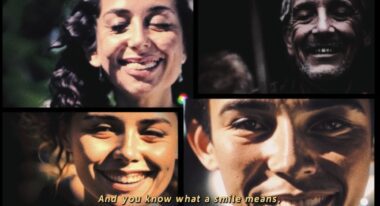Winter 2024

The Passionate Epicures: The Taste of Things Director Tran Anh Hung Interviewed by Frederick Wiseman
A long-gestating passion project for Tran Anh Hung, The Taste of Things takes as its starting point Marcel Rouff’s eccentric, echt-French novel The Life and Passion of Dodin-Bouffant, Gourmet, which follows Dodin-Bouffant in the wake of the death of his longtime cook and occasional sexual companion Eugénie. For his adaptation, Hung retains a few of the book’s incidents but otherwise chooses to tell the story of Dodin-Bouffant and Eugénie’s life before the novel starts. A period romance set in 1889, Taste begins with a lengthy sequence of pure cooking—when I saw the film at Cannes, a woman behind me moaned […]

Features

Hits & Misses: How Six Sundance 2023 Titles Performed in Distribution
After nearly flatlining during the pandemic years, American independent film saw some signs of life in 2023. While optimists might call it a year of transition as the industry looks for new audiences and a new equilibrium, cynics see an unsustainable and contracting arthouse marketplace, with most producers and distributors increasingly unable to recoup. But, if you look at the fates of last year’s Sundance titles, it wasn’t as bad as it could have been. For all the doom and gloom about the acquisitions market (“No one is buying films!”), 10 out of 12 films in this year’s Dramatic Competition […]
-
 The 29 Features Shot, In Whole or In Part, on 35mm in U.S. Release Year 2023
The 29 Features Shot, In Whole or In Part, on 35mm in U.S. Release Year 2023
During the NBA playoffs this year, a Miller Lite commercial unexpectedly compelled my attention. The frames’ edges were rounded, the images’ scratches conspicuous—this was either shot on film or trying very hard to look like it. Further digging confirmed the spot (title: “You Never Forget”) was shot on 35mm, perhaps in keeping with its nostalgic world of bars with CD jukeboxes and cathode-ray TVs. I’d often read over the past decade that commercials and music videos have been using celluloid with increasing frequency; collating this year’s (tenth!) annual edition of U.S.-released features shot in whole or part on 35mm [2014, […]
-
 The Future is Unwritten: Mark Asch on 2023 in Film
The Future is Unwritten: Mark Asch on 2023 in Film
For what, and for whom, do workers work? One way to conceptualize the 2023 writers’ and actors’ strikes is as a fight for the right to refuse the demands of shareholder capitalists maximizing return on investment and tech-world futurists devising new forms of extraction, notably via a disrupted exhibition environment that siphons away profits once reserved for residuals and AI that treats words and likenesses as royalty-free intellectual property. As I embark on this year-in-review exercise, I am also conscious of the past few months of policed speech—on campuses, within political parties, at newspapers and in the film world. At […]
-
 The Art of Angling: The Making of Rose Troche’s Classic Microbudget Lesbian Love Story, Go Fish
The Art of Angling: The Making of Rose Troche’s Classic Microbudget Lesbian Love Story, Go Fish
1994’s Go Fish, Rose Troche’s smart, punked-out work of guerilla filmmaking, combined a playful take on lesbian dating with discursive dialogues around gender politics and the cultural history of gay female representation. Part of the late ’80s and early ’90s low-budget boom of what critic B. Ruby Rich dubbed New Queer Cinema—films such as Poison, Swoon, The Hours and Times, Born in Flames and The Watermelon Woman—the Chicago-set Go Fish finds hip college student Max (Guinevere Turner, also the film’s screenwriter and producer) in a romantic rut and set up by friends with a hippie-ish older lesbian, Ely (V.S. Brodie). […]
Other articles
- Sounds that Cannot Be Unheard: Sound Designer Johnnie Burn on The Zone of Interest
- Creative Reactions: Cinematographer Hoyte van Hoytema on Oppenheimer
- Behind Closed Doors: Production Designer Kevin Thompson on Maestro
- Tone and Rhythm: Editor Hilda Rasula on American Fiction
- Inner Soundtrack: Composer Jerskin Hendrix on Poor Things
- Committing to the Vision: On Launching FILM FEST KNOX
- At Home With His Memories
- Clothes Tell the Story: Costume Designer Stacey Battat on Priscilla
-
 Authoring Your Life Story: Joanne McNeil on Self-Archiving and George Westren
Authoring Your Life Story: Joanne McNeil on Self-Archiving and George Westren
For any artist who works with digital files in the twenty-first century (that’s most of us), the work—in addition to making the art—is making sure it sticks around. To both archive and maintain your own work is a reminder of the gap between current practice and public markers of success. It can feel like an exercise in futility: If this work was really worth it—if someone other than you believed in its value—wouldn’t you have the time and money and institutional support to do it right? A library would offer to acquire your letters, no? Or, perhaps, with awards, grant […]
-
 Progress in Small Steps: Camera and Lighting Technology Trends in 2023
Progress in Small Steps: Camera and Lighting Technology Trends in 2023
Commercial theatrical projection for most folks is an afterthought. A DCP gets loaded into a playout server, sound levels checked, curtains adjusted, and everything is good to go. This testifies to the efficacy of the two-decade old DCP (Digital Cinema Package) container format. However, DCP adoption was not always smooth sailing. In 2009, a necessary DCP revamp complicated the industry’s transition away from 35mm. The original “Interop” specification, which had only been provisional, was superseded by a set of standardized specifications from the Society of Motion Picture and Television Engineers (SMPTE). Interop supported only one frame rate, 24 fps, but […]
-
 Lessons from the AI Filmmaking Rabbit Hole: Holly Willis on Teaching During Rapid Technological Change
Lessons from the AI Filmmaking Rabbit Hole: Holly Willis on Teaching During Rapid Technological Change
I recently found myself sitting between three tech bros on my right and three cinephiles on my left. The film festival panel was meant to be a discussion about AI in the film industry; instead, it was an exasperating—if entertaining—demonstration of the radical gap in knowledge separating people who have some technical understanding of AI and those who don’t. There were tone-deaf proclamations about “generating content” and “optimizing workflows” on one side. And there was shouting, swearing, table-pounding, finger-pointing and (almost) tears on the other side, culminating in the announcement, “We’re very afraid!” I get it. AI has been foisted on […]
Also: “Let’s Make It Feel Like You’re Watching TV During Y2K”: Directors Brian Becker and Marley McDonald on Time Bomb Y2K In an Instance Bad Education: Writer/Director Molly Manning Walker on How to Have Sex Editor’s Letter
